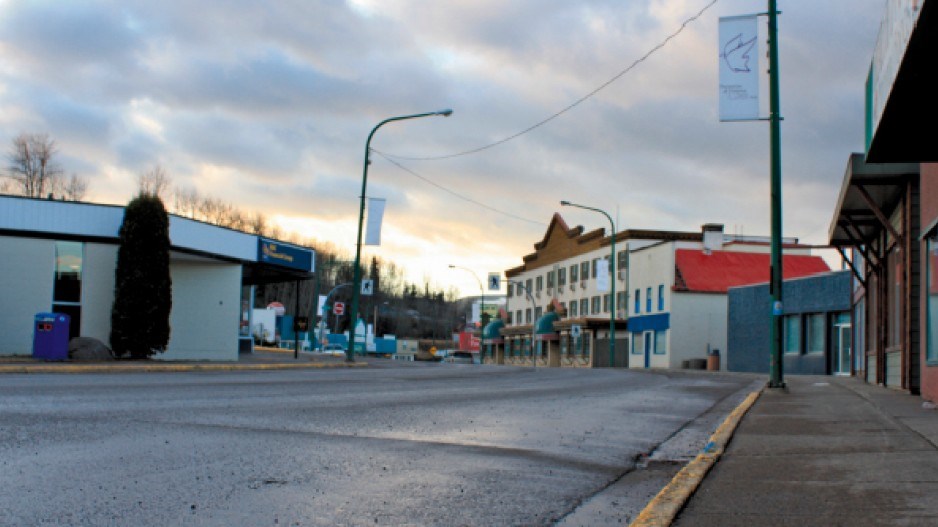The Babine Forest Products sawmill in Burns Lake, which went up in flames in January, will be rebuilt, says the Portland-based owner, Hampton Affiliates.
Despite concerns over a shrinking timber supply – the result of the mountain pine beetle infestation in B.C. – Hampton Affiliates announced Monday it will rebuild, albeit on a smaller scale.
The mill’s reconstruction will depend on getting an operating agreement with the union representing mill workers and access to a reliable supply of timber.
Those agreements need to be in place by December, when Hampton’s board of directors plans to make a final decision on rebuilding, Hampton CEO Steve Zika said in a teleconference Monday.
Bob Matters, chairman of the wood council for the United Steel Workers, told Business in Vancouver he didn’t think extending the current collective agreement to cover workers at a new mill will be an issue.
“We do have a collective agreement in place with the company, and I’m sure there’ll be no problems living up to that by the company,” Matters said.
“It will be a little bit smaller, but that also means it will be more efficient and hopefully that will make it more competitive, and that should be good news for the long-term.”
Access to logs is becoming an issue for mills throughout B.C., which is why there had been some doubt the Burns Lake mill would be rebuilt.
But the B.C. government – working in conjunction with Hampton and six First Nations with Burns Lake Native Development Corp. – has hammered out new agreements that will ensure the new mill will have access to 594,000 cubic metres of timber per year.
The B.C. government has agreed to tenure reform, some parts of which have similarities to the appurtenancy provisions – which tied logs to mills in the area where they were cut – that the Liberal government scrapped more than a decade ago.
Hampton won’t say how much it will cost to rebuild the mill, although Zika said it will be more than what the company will get from fire insurance.
“The insurance will cover a lot of it, but not all of it, which is why there is an additional investment required to rebuild the mill,” Zika said.
“They could have chosen to deploy this capital anywhere they wanted to, but they chose Burns Lake and British Columbia, and I think that is an enormous vote of confidence in our forest industry here,” said Pat Bell, minister of Jobs, Tourism and Skills Training.
Because the new mill would have two-thirds the capacity of the old one, it will employ fewer workers.
“You’re roughly looking at 50% to two-thirds of the former employees,” Zika said.
Some of the timber being freed up for the rebuilt Burns Lake mill would be new: stands that, in the past, have not even been included in the annual allowable cut because they were too small and remote to be considered economically viable.
Zika said increased lumber prices and a “bioenergy” premium on wood waste it will sell to Pinnacle Renewable Energy Group – which makes wood pellet biofuel – should make those stands more viable.
One sawmill worker was killed and 19 injured when an explosion razed the Burns Lake mill January 20. The damage to the community continued long after the mill was closed, however.
Burns Lake has seen an increase in domestic issues resulting from the stress on families where former mill workers are either unemployed or forced to be away from their families to work at other jobs in the region.




